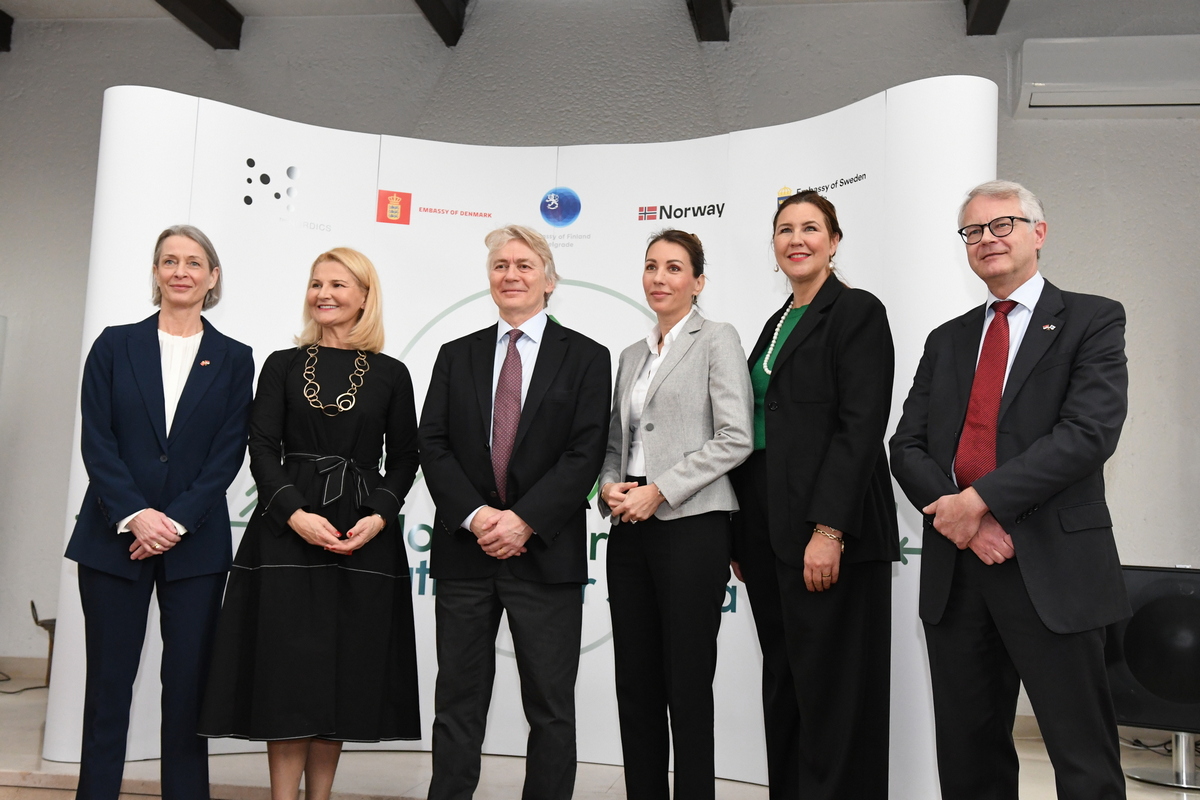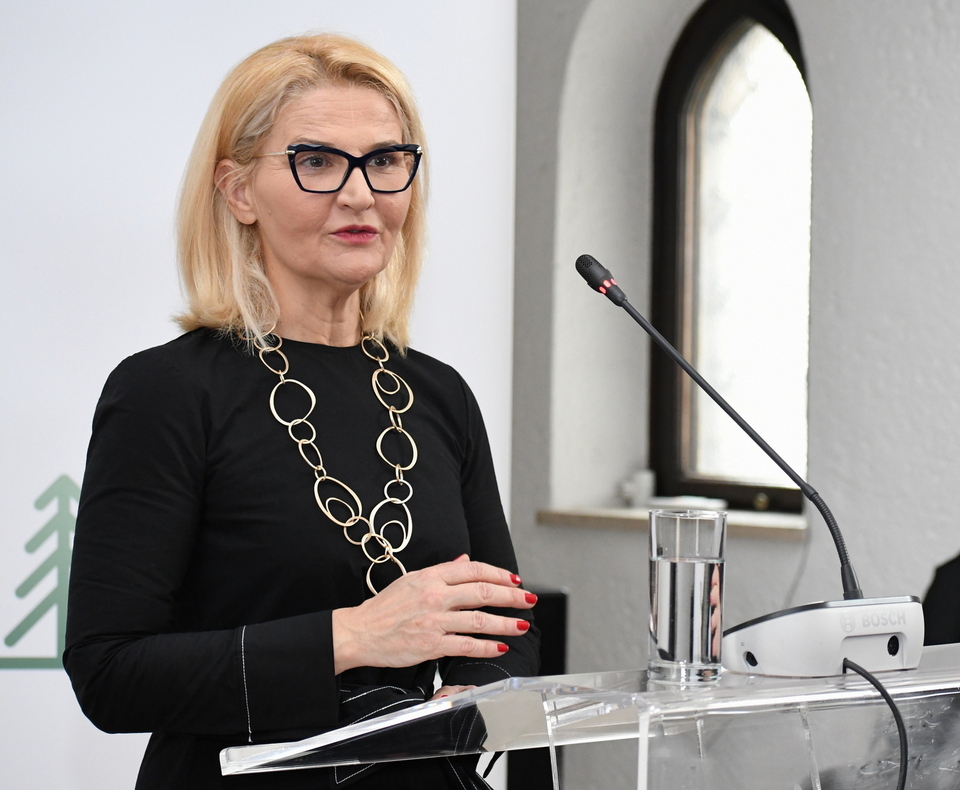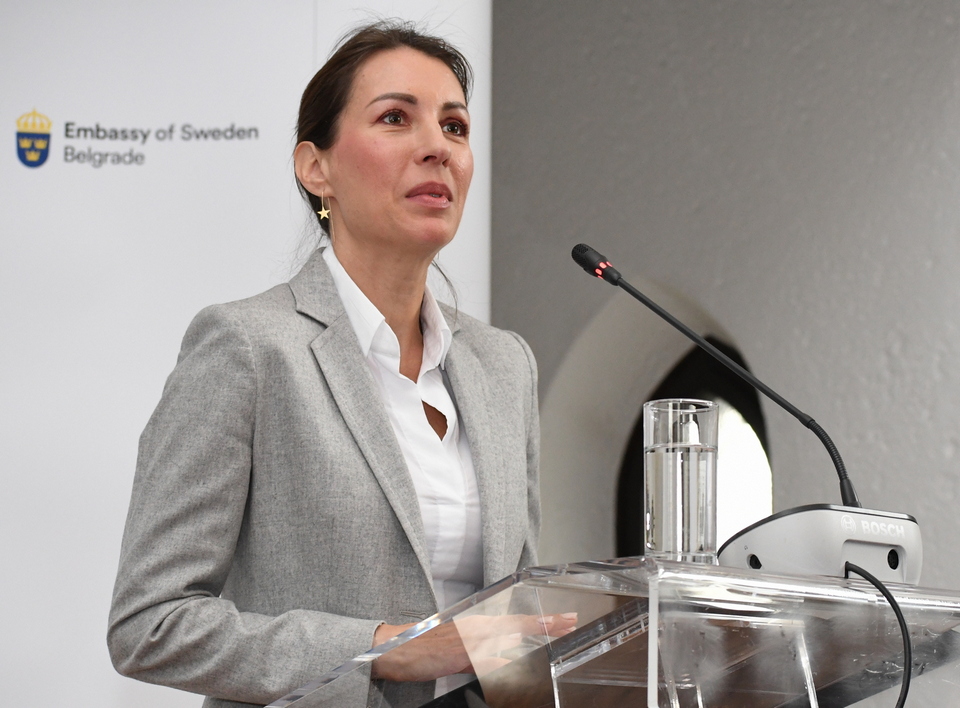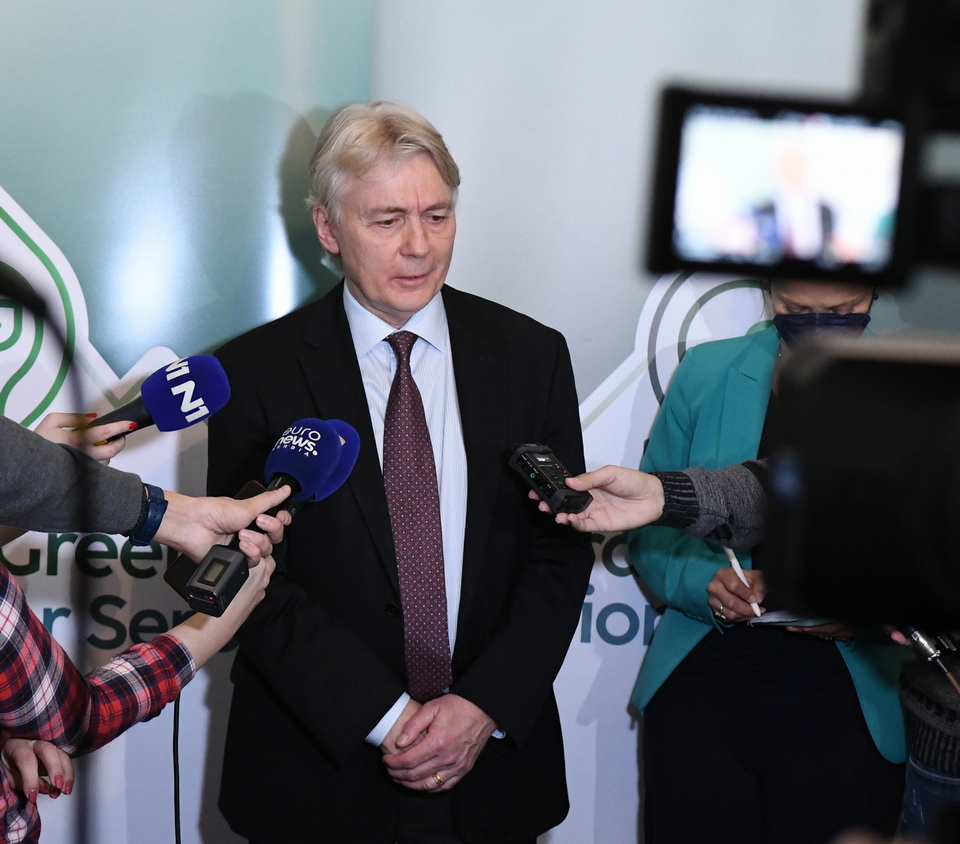In the residence of the Norwegian ambassador, a ceremony was held on the occasion of the completion of the “Nordic Green Project – Sustainable Solutions for Serbia” initiative for 2022/23. This initiative presented Nordic green solutions to the domestic public, that is, Nordic green technology, business models for environmental protection, and solutions in the fight against climate change, all with the aim of creating a sustainable future

The ceremony was attended by Ministers in the Government of Serbia, Tanja Miščević, Minister for European Integration and Dubravka Đedović, Minister of Mining and Energy, ambassadors of four Nordic countries, Susanne Shine – Denmark, Kimmo Lähdevirta – Finland, Jørn Eugen Gjelstad – Norway, and Sweden’s Annika Ben David, as well as representatives of local self-government, business associations, the academic community, and others.
Addressing the present dignitaries and media representatives, the host of the ceremony on behalf of the four Nordic embassies, Jørn Eugen Gjelstad, Ambassador of Norway, said: “I think we can safely say that the “Nordic Green Project – Sustainable Solutions for Serbia” has inspired and increased interest and knowledge about what Serbia and the Nordic countries can do together to speed up the process of green transformation in Serbia. Europe is rapidly moving in a green direction and market conditions will demand green solutions in every sense. Therefore, although the green change is primarily a question of a sustainable human environment, the fight against climate change, and the improvement of public health, this process is just as much a question of rational economic interests and choices for Serbia, which must preserve its access to European markets and be attractive to foreign investors. Within this initiative, Norway took a leading role in promoting renewable energy and presented ideas on how to increase its use, find the best solutions for energy storage, solve the balancing problem, and what are the advantages of the regional market.”

“It is a great honor and pleasure that today we have the opportunity to celebrate this important project of four Nordic countries, our friends in the process of European integration, but above all friends in the process of changes and reforms in Serbia.” The biggest help of this project is in the transfer of knowledge, experience, and practice. That is why I would like to use this opportunity to once again thank our Nordic friends, as well as the entire EU, which from 2008 to today has been helping the development of local infrastructure with hundreds of millions of euros. We are obligated to implement the Green Agenda, the regional document we accepted in 2020 at the summit in Sofia. Based on this document, we have already adopted a clear action plan with the intention of decarbonization by 2050 with an emphasis on biodiversity and its improvement, and of course, all of this must be in accordance with nature protection,” said Tanja Mišćević, Minister for European Integration.
The Minister of Mining and Energy, Dubravka Đedović, pointed out that the Nordic countries are essential partners in the green transition process, both in the form of investments and in the form of advice, and added: “In Serbia, several projects related to renewable energies are underway, primarily in the field of wind and solar, in which the Nordic countries also participate. Our country is firmly committed to a green transition. The goal is to make our energy system stable, secure, and independent. That is why we must decisively and quickly implement reforms in the energy system. In that process, we have the support and help of our friends from the EU, and I will use this opportunity to thank them once again for that.”

As part of this initiative, four conferences were held in Novi Sad, Belgrade, Čačak, and Niš, on four different topics (sustainable agriculture, renewable energy sources, waste management, and green business and industrial processes), where each of the four Nordic embassies was the host of one of the conferences with the patronage and support of the remaining three Nordic embassies. All conferences were held in science and technology parks. On this occasion, the Ambassador of Finland, Kimmo Lähdevirta, pointed out: “The science and technology parks in Novi Sad, Belgrade, Čačak and Niš were partners of the Nordic embassies for a reason. The role of innovation is greater than ever, and digitization and IT solutions are seen as the main tools that enable the green transition. Local companies should recognize the potential of investments in green technologies and solutions because they will return to them often”.
Sweden currently presides over the EU and is one of Serbia’s largest bilateral donors in the environmental field, especially in waste management, which was the topic of the conference led by this Nordic country. “We have supported the improvement of waste management in Serbia in many ways, as part of the wider reform of environmental protection and our support for Serbia’s path to the EU.” Also, we supported the Government of Serbia in developing EU standards that are applied in waste management and circular economy,” said Ambassador of Sweden Annika Ben David.

The conferences were attended by leading Nordic experts from the above-mentioned fields, as well as local experts, who shared their knowledge, experiences, and good practice. “It was great to see how at each conference a significant number of Nordic and Serbian experts, and company representatives, gathered to discuss what is the best way to ensure sustainable and green production methods in the future,” said Susanne Shine, Ambassador of Denmark, adding: “After the conferences, the positive results of the created partnerships are clearly visible, and the Danish embassy is looking forward to continuing to build this strong green partnership with Serbia.”
The Nordic countries have experience and practice in the green transition, which is not only a necessity but an opportunity for development to be on a sustainable basis. The green transition is an excellent opportunity for new investments, the creation of new jobs, and the strengthening of the local market and businesses around it. At the same time, it is the path to greater productivity, efficiency, and less use of resources, i.e. a healthier environment. It is known that the Nordic countries have close cooperation in many fields, as well as the Nordic solidarity with other countries and constant efforts to transfer their experiences and best practices to others.